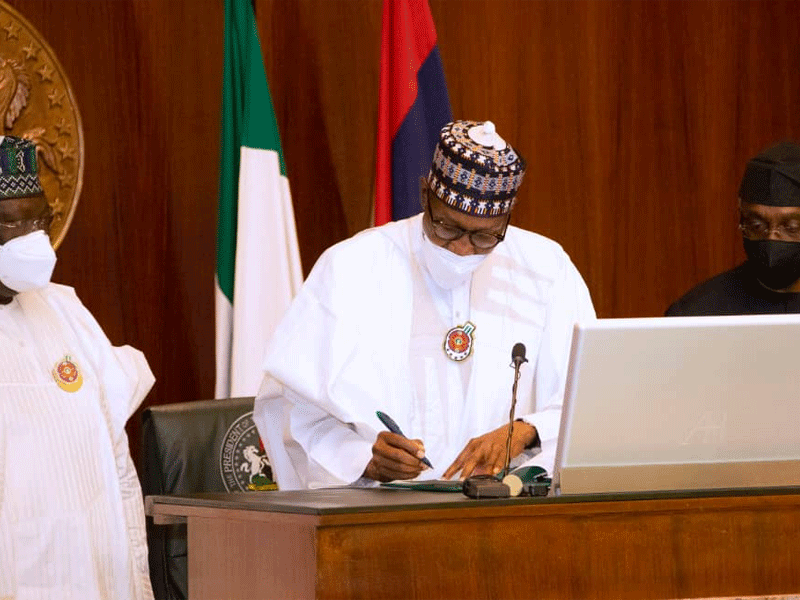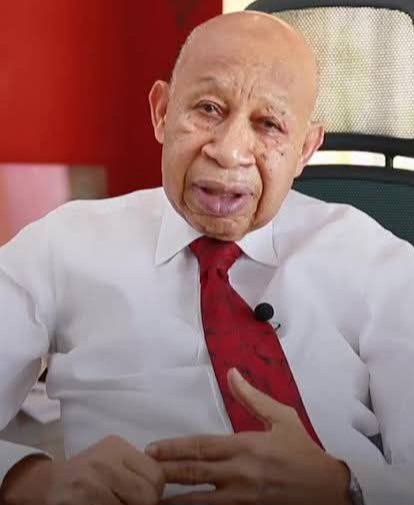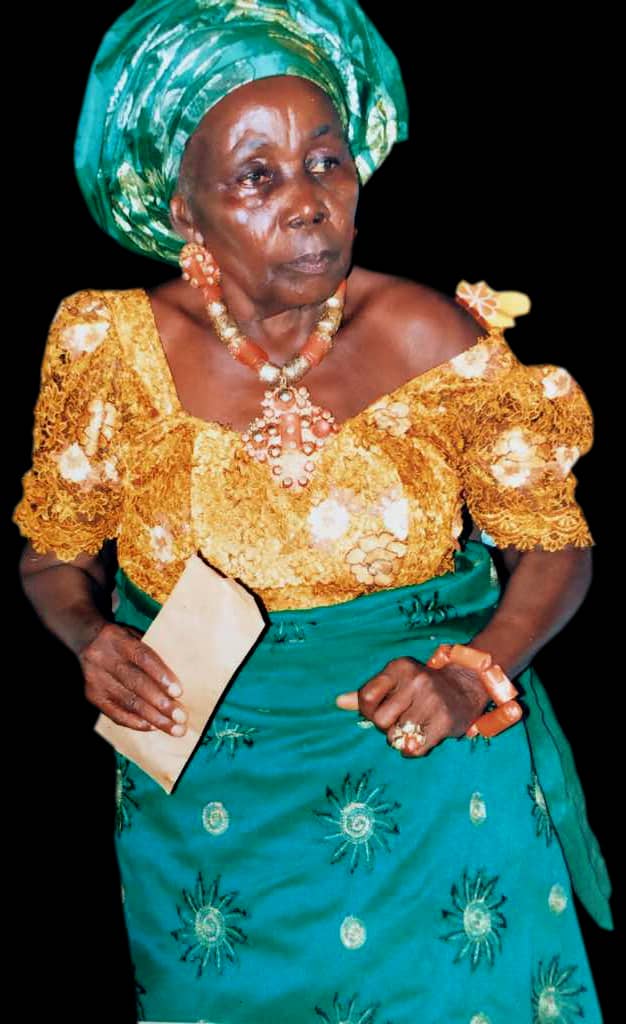Breaking: Finally, Buhari Signs Electoral Act Amendment Bill Into Law

President Muhammadu Buhari on Friday by mid day finally signed the reworked Electoral Act Amendment Bill into law.
The event was disclosed by the presidential aide Bashir Ahmad via his verified Twitter handle.
“BREAKING: President Muhammadu Buhari has signed the Electoral Act Amendment Bill 2021 into law,” his tweet read.
The president assented to the bill at past midday on Friday at a brief ceremony held at the council chamber of the Aso Villa in Abuja.
The vice president, Professor Yemi Osinbajo; president of the senate, Ahmed Lawan, and speaker of the House of Representatives, Femi Gbajabiamila, witnessed the signing of the bill.
Buhari had withheld his assent to the bill in November 2021, citing the cost of conducting direct primary elections as part of the reasons for his decision.
He also cited several disadvantages of the provision to the mandatory direct mode of primary, including security challenges, possible manipulation of electoral processes by political players as well as political parties’ inability to muster funds for it.
The bill earlier passed by the National Assembly on November 18, 2021, provided: “A political party seeking to nominate candidates for elections under this bill shall hold direct primaries for aspirants to all elective positions, which shall be monitored by the commission.”
But the president while declining assent, disclosed that he would only sign the bill if the lawmakers provided options for the conduct of primaries by political parties; an action that prompted the lawmakers to re-work the bill, leading to the emergence of two versions in the green and red chambers.
The house had re-amended the bill to include the direct and indirect primary options while the senate re-adjusted it to include the direct, indirect, and consensus modes of selecting political parties’ candidates.
Both chambers later passed the harmonized version – the final agreed version of the amendment to Clause 84 which included the direct, indirect, and consensus primary modes.
The amended bill provides in Clause 84 (2), “The procedure for the nomination of candidates by political parties for the various elective positions shall be by direct, indirect primaries or consensus.”
It adds in 84(3), “A political party shall not impose nomination qualification or disqualification criteria, measures, or conditions on any aspirant or candidate for any election in its constitution, guidelines, or rules for nomination of candidates for elections, except as prescribed under sections 65, 66, 106, 107, 131, 137, 177 and 187 of the Constitution of the Federal Republic of Nigeria, 1999 (as amended).”
On direct primaries in 84 (4), the amended version provides, “A political party that adopts the direct primaries procedure shall ensure that all aspirants are given equal opportunity of being voted for by members of the party and shall adopt the procedure outlined below:
“(a) In the case of presidential primaries, all registered members of the party shall vote for aspirants of their choice at a designated centre at each ward of the federation.
“(b) The procedure in paragraph (a) above of this subsection shall be adopted for direct primaries in respect of Gubernatorial, Senatorial, Federal and State Constituencies.”
On indirect primaries, the bill provides under 84(5), “A political party that adopts the system of indirect primaries for the choice of its candidate shall adopt the procedure outlined below:
“(a) In the case of nominations to the position of Presidential candidate, the political party shall – (i) hold a Special Presidential Convention at a designated centre in the Federal Capital Territory or any other place within the federation that is agreed to by the National Executive Committee of the party where delegates shall vote for aspirants of their choice.
“(ii) the aspirant with the highest number of votes cast at the end of voting shall be declared the winner of the Presidential primaries of the political party and that aspirant’s name shall be forwarded to the Commission as the candidate of the party.”
On consensus candidate the bill in 84(9)(a) provides, “A political party that adopts a consensus candidate shall secure the written consent of all cleared aspirants for the position, indicating their voluntary withdrawal from the race and their endorsement of the consensus candidate.”








